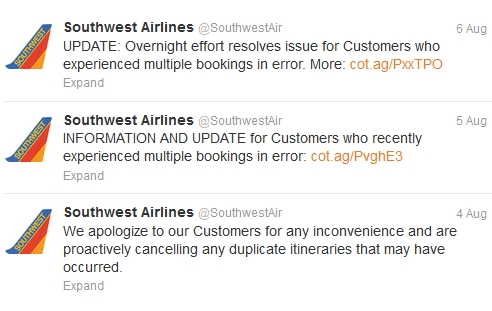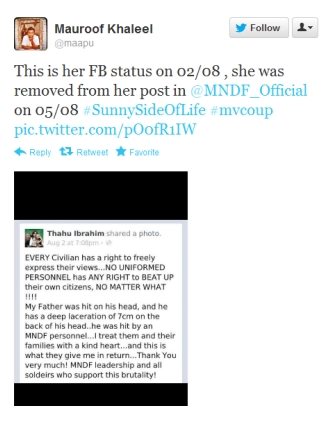Damage limitation: What to do when your Facebook fans turn against you?
Your Facebook fans could be in their millions and you work hard to keep them happy. So what do you do when the same fans react to a mistake of yours? Recently Southwest Airlines has had such an experience. And, ironically, it all started with the airline’s decision to celebrate a Facebook fan milestone. Ritesh Gupta evaluates what travel companies can learn from such mishaps.
Irrespective of how customer-friendly an organisation might be, mistakes do happen. Any consumer-facing aspect of your business can go awry and, in no time, difficulties experienced by customers are shared on social-media sites.
Promotion problems
Late last week Dallas-based Southwest Airlines chose to celebrate a major milestone – becoming the first airline worldwide to amass three million Facebook fans. It offered a 50% off promotion; customers were given a promotion code which could be used for a day. The discount was valid for up to eight customers on a single reservation and only valid if purchased on the airline website.
But the initiative went awry.
The ‘August 3 limited time offer’ resulted in website performance issues at various times over the weekend. And in some customers were charged more than once for the same reservation. One customer was even charged 12 times for one attempt at making a reservation.
The airline quickly recognised the problem, referring to the case of duplicate bookings and charges, on Facebook and Twitter. It issued an apology and said that it was in the process of proactively cancelling duplicate itineraries.
But many troubled customers wrote about their experiences on the airline’s account on Facebook. As an airline that says it interacts with its customers and fans every day, Southwest chose to post regular updates, including these ones on Twitter.

As far as its postings on Facebook were concerned, the airline explained the situation on all three days till 5 August when it claimed that it had identified all customers affected, and had initiated refunds to their financial institutions for any erroneous bookings.
While Southwest chose to keep customers aware of the situation, other travel organisations still struggle to maintain a social media marketing campaign or even to deal with routine customer service issues.
For instance, Maldives Marketing and Public Relation Corporation last month invited the UK to take part in the destination’s first social media campaign by attempting to make #SunnySideOfLife a global twitter trend. The objective was to encourage tourists to tweet their experiences of their idyllic destination, and in turn make the tourism slogan a recognisable catchphrase associated with Maldives.
On the contrary, the hashtag was used by a section of Twitter users to talk about the unrest in the country and is still part of conversations. This was definitely not the original intention.

Contingency plan
Clearly there is a need for a social media contingency plan. A plan that allows teams to set expectations, and also how to respond to any negative feedback.
Some considerations were suggested to us by Revinate earlier this year:
-
You must stay on top of what is being said about your brand
-
Companies do have the power to remove some negative comments if they appear on review sites and are clearly fake or violate the site’s rules
-
Companies must think through all campaigns and ensure they have a plan in place for different scenarios, especially if you’re asking for customers to share content
According to Revinate, social media teams should have executive buy-in to ensure that no team member is held liable if and when negative comments roll in. Brands should have a document that outlines the response they will take across different scenarios, along with the anticipated response time.
“When planning for any social media campaign it’s a good idea to anticipate potential negative reaction and have messaging for those scenarios. However, at times discussions come up that weren’t planned for. In those situations, it’s important to have established a chain of communication to know who is responsible for approving messaging for different scenarios,” says Jennifer Stafford, social media manager, HomeAway.com.
Stafford says it’s also important that those in that chain understand the importance of prompt responses, especially when it’s an issue or negative conversation on your social media account.
When dealing with negative comments or complaints you have to evaluate the situation on a case-by-case basis. It’s worth recognising when users are angry and venting, as opposed to having a genuine issue that could be resolved by engaging in conversation with them.
When no resolution is going to come from engaging with someone who is venting their frustration, it’s best to just let them voice their issues and move on, says Stafford.

